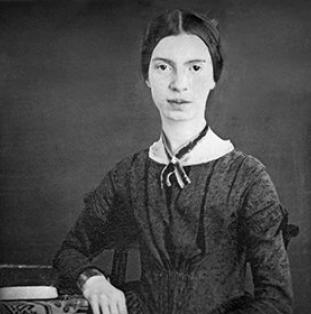Read the poem
Summary
‘I’m “wife” — I’ve finished that’ is a poem that states the different tensions revolving around in a woman’s mind. The poet is torn between being a spinster and a wife. She writes the beginning of the poem as a wife, and narrates the other part of the poem with the mind of a spinster (an unmarried woman, typically an older woman beyond the usual age for marriage.) This poem appears in Dickinson’s first poetry collection Poems(1890).
The beginning line of the poem, just like most of her other poems, is used as the title of the poem. Dickinson has not named many of her poems, and later they were named using the very first line of the poems. The line ‘I’m “wife” — I’ve finished that’ means that the speaker is now a wife, and she has finished the unmarried state. She calls herself a ‘Czar’ meaning a ruler, now that she is ‘complete’ as a woman. She is now safer, because she is married now. A woman was safer being married in the 19th century rather than remaining alone.
Next the poet imagines a different condition. She portrays the life of a girl, which is odd. The poet is looking at a girl’s life from behind the eclipse, meaning from the sunny side of the eclipse. The girl who is starring at it only sees darkness. This line also describes the safety found in marriage. The poet, who is now married is looking at her younger self from behind the eclipse, which is a shiny and bright side as compared to the darkness that young girl is starring at. Those in heaven see towards the earth from the brightness, while those in earth sees only darkness. This is how a wife, now in comfort and safety, like Heaven feels like while looking at a girl who is alone.

Then the poet makes a contrast to the two lives of a woman. She says that the life being a wife is safer and comfortable than the ‘other kind’, i.e. the life being a spinster. Being a single woman is painful. The poet concludes by stating that a life of being a wife is much better than being a spinster. But the concluding words ‘Why Compare?’ leaves the readers in a state of confusion. The poet who remained unmarried herself, might be actually trying to sarcastically convey the idea that why must we compare these two lives of a woman. She might be frustrated at the comparison of a wife and an unmarried woman, and asks people to stop.
‘I’m “wife” — I’ve finished that’ is divided into three stanzas of four lines each, known as ‘quatrains’. The poem doesn’t follow a specific rhyme scheme.